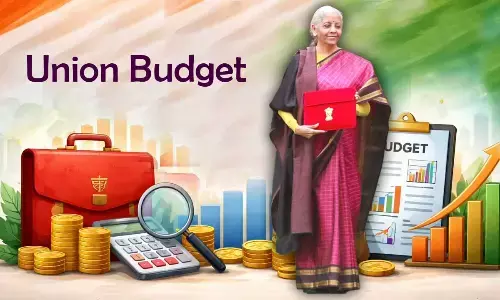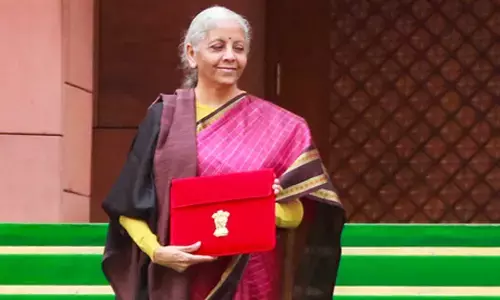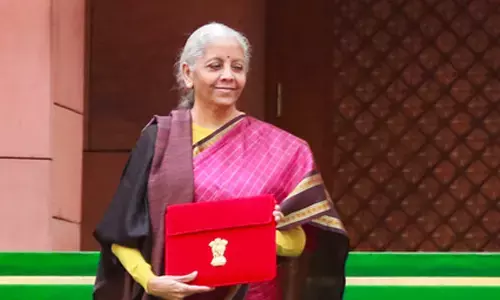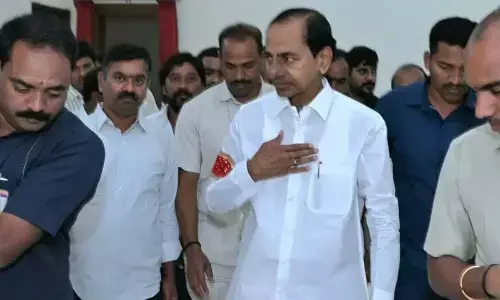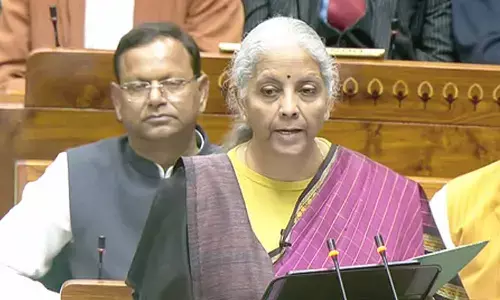Deadly bacteria, surge in non-communicable diseases key challenges for India
Share :

As India moves into the new year, health experts predict a rise in diseases due to multi-drug resistant bacteria and in non-communicable diseases in the country in the years to come.
New Delhi: As India moves into the new year, health experts predict a rise in diseases due to multi-drug resistant bacteria and in non-communicable diseases in the country in the years to come.
Experts said that India is progressing rapidly and along with this progress comes affluence, and the concerns and problems associated with it.
“We are going to see an increase in large numbers in the diseases which come with inactivity and obesity, like high blood pressure, heart disease, which is heart attacks and ischemic heart disease,” said Dr Preeti Chhabria, consultant and director of internal medicine at Sir HN Reliance Foundation Hospital in Mumbai.
India will continue to lead the way in terms of diabetes because of the high carbohydrate intake in the diet of Indians.
“By 2030, we're also going to see a large percentage of the population having concerns with obesity and being overweight. Apart from this, what is an extremely worrisome prediction for 2030 is that diseases with multi-drug resistant bacteria will rise,” Dr Chhabria told IANS.
Unless pharmaceutical companies come out with a large number of antibiotics, what we are going to face in India is multiple infections with very, very drug resistant bacteria. Part of the problem is that there is an indiscriminate use of antibiotics today.
Health experts said that unless people curtail that use, infections with drug resistant bacteria are only going to be a growing problem.
“What I do predict is that, diseases like tuberculosis and HIV will be under better control and in lesser numbers and have less of an impact on healthcare spending. I think those are being better controlled and a greater watch is being kept on them. So those are going to be less of a concern,” said Dr Chhabria.
According to Dr Dipu TS, Associate Professor, Division of Infectious Diseases, Amrita Hospital, Kochi, India's healthcare future in 2030 presents a dual challenge — a surge in Non-Communicable Diseases (NCDs) like diabetes, heart disease, and cancer fuelled by aging, lifestyle shifts, and urbanisation. NCDs will likely take centre-stage, with figures like diabetes skyrocketing from 62 million to 79 million by 2030.
“The threat of infectious diseases will persist as evidenced by the Covid-19 pandemic. Emerging infectious diseases, antibiotic resistance, and social inequalities keep them relevant,” Dr Dipu told IANS.
To navigate this, India needs a two-pronged approach: Bolstering healthcare infrastructure, promoting healthy lifestyles, and ensuring equitable access to care for both NCDs and infectious diseases.
DS Negi, CEO, at Rajiv Gandhi Cancer Hospital & Research Centre in Delhi-NCR, said that early 2023 marked a milestone in India's fight against cervical cancer with the launch of its own highly effective, domestically-developed vaccine.
“Beyond vaccines, innovative treatment approaches like targeted therapies and immunotherapies gained traction in India. These personalised and immune-boosting strategies are expected to see even wider adoption in 2024 and beyond, offering new hope for patients,” Dr Negi said.
The other exciting trend reshaping healthcare in 2023 was the growing integration of Artificial Intelligence (AI), particularly in radiology and imaging.
“AI's ability to analyse vast datasets empowers radiologists by identifying subtle patterns and anomalies in scans, leading to faster, more precise diagnoses. This not only expedites the diagnostic process but also minimises the possibility of missed details, ultimately improving patient outcomes,” he emphasised.







